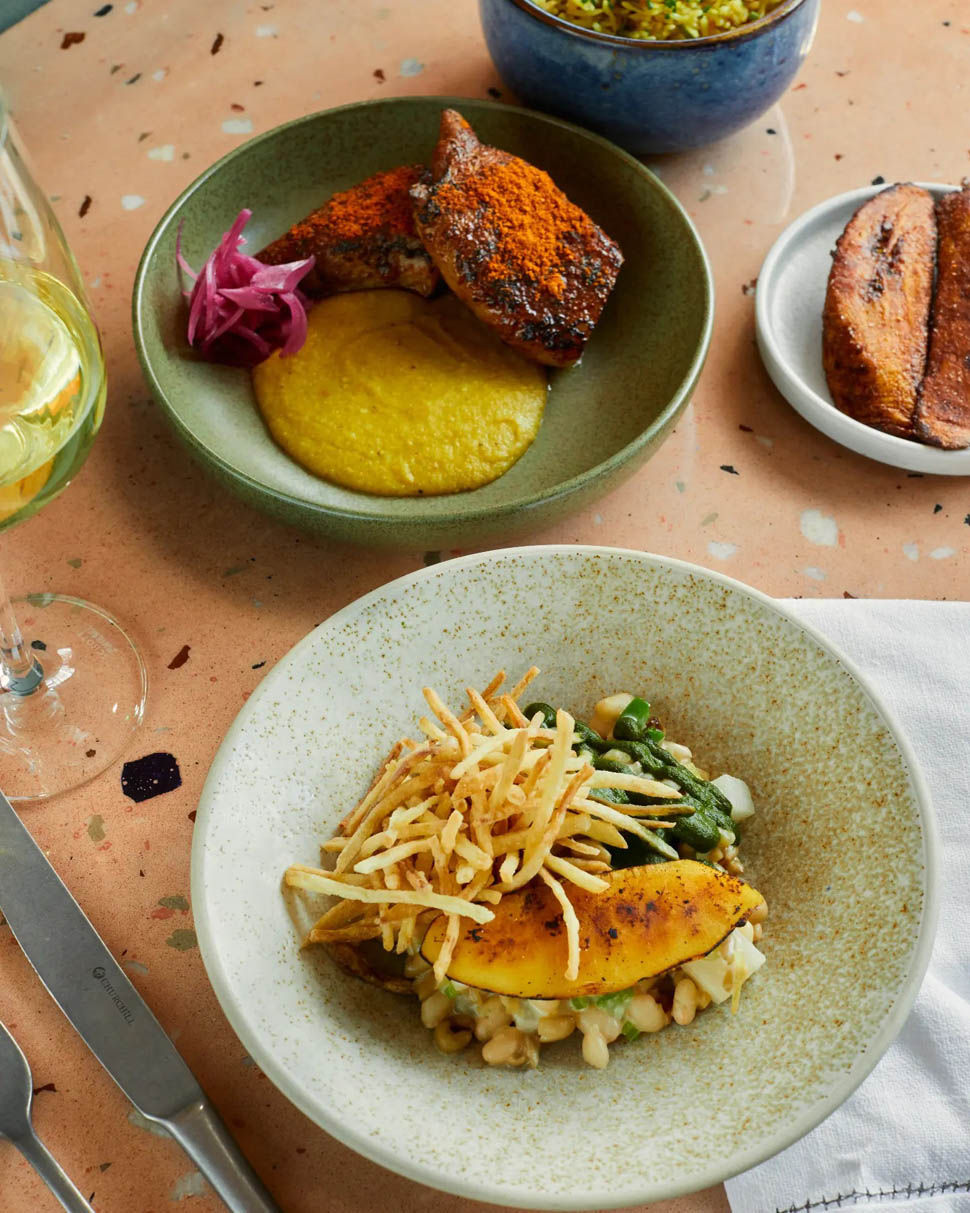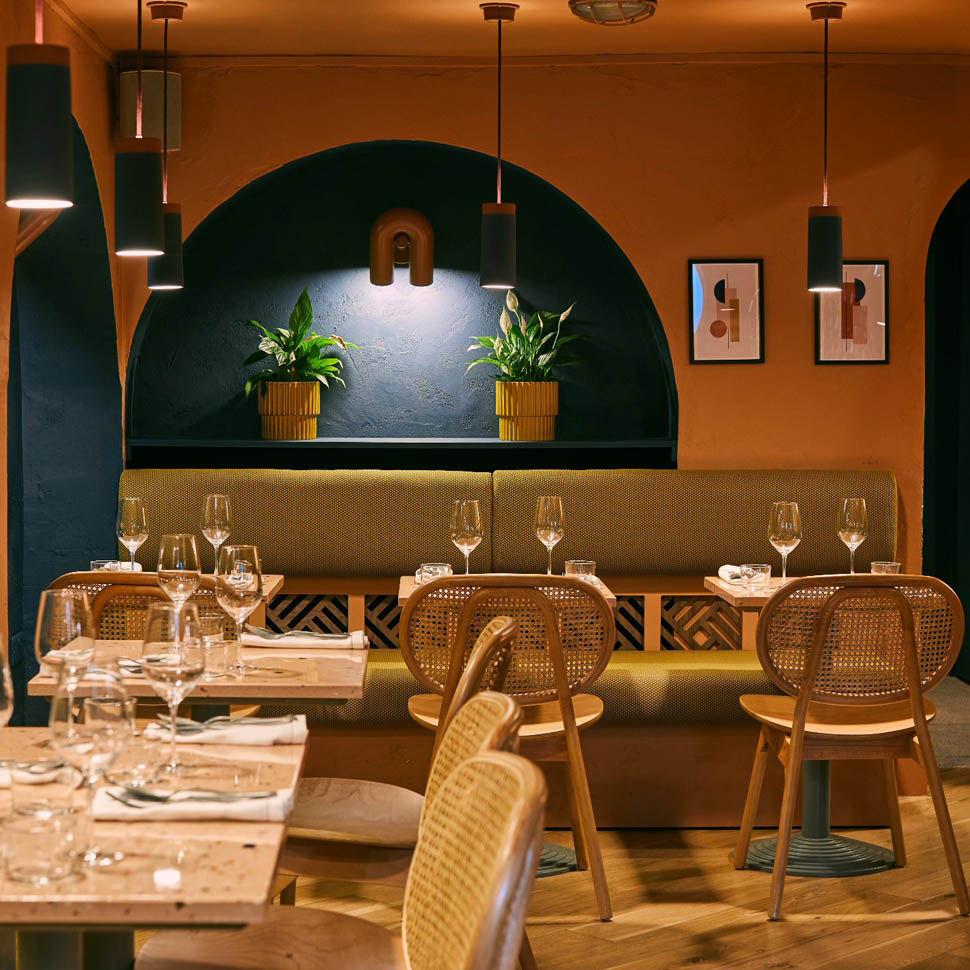"Dream, Dream, Dream! Conduct these dreams into thoughts, and then transform them into action."
- Dr. A. P. J. Abdul Kalam
"Dream, Dream, Dream! Conduct these dreams into thoughts, and then transform them into action."
- Dr. A. P. J. Abdul Kalam
26 Mar 2024
As the Head Chef at Chishuru, Bakare received a Michelin star on February 5, 2024, making her the first Black woman to get the honor in the United Kingdom and the second Black woman overall, following Chef Mariya Russell, who received hers in 2023. When she started gathering cookbooks at the age of eleven, her passion for food and cooking was ignited. However, she was urged to follow more traditional career choices, so she enrolled in a university in Kaduna, northern Nigeria, to study biological sciences. She relocated to the UK and worked in a variety of fields, such as property management and caregiving. having had the desire to create a restaurant since forever.
Her Story:
Adejoké Bakare, the chef and owner of Chishuru, a restaurant in London that serves food influenced by West African cuisine, recently received a Michelin star. This is a significant achievement for Bakare, who is now the first black female Michelin star chef in the UK and only the second in the world. When Joké first launched Chishuru as a pop-up in Brixton in September 2020, it became well-known owing to the British reviewer Jay Rayner, who has long been a part of The Guardian news publication. Rayner called Joké's food "full of warmth, vigor, and flavor." Thus, it should come as no surprise when in September 2023 the restaurant became a permanent fixture.
In less than half a year after its permanent debut, Chishuru has become one of London's most talked-about restaurants. According to the Michelin Guide, it has greatly improved the UK's culinary options by bringing attention to African food. The meals, which include a sophisticated use of spices, are flavorful, rich, and delightful. The sauces, such as the caramelized onion and lemon with guinea chicken yassa or the scotch bonnet with ekuru, are particularly noteworthy. All of this is supported by a lively environment and welcoming service. Authentic food with a strong foundation in African cultures is what Joké and her crew strive to serve, along with taste combinations that will entice one to return for more. The food is fairly priced; lunch, for instance, will set you back between £35 and £40 per person because of a modified fixed-price menu that accommodates the demands of employees.
Her style is unique and the restaurant is a wonderful reflection of her personality and her cooking – it is fun, full of life, generous, and hugely enjoyable. When asked if the industry needed to be more diverse, Bakare said: “Absolutely. Especially in London, where there’s so [much] food, there’s so many people, you can eat the world if you want to, if you know where to look. I think more publications, more food writers, should go out more and explore all of this.”
Addressing The Variety of African Food ~
Africa has an amazing diversity of cuisines that represent the breadth of the continent, the variety of its climates, and the diversity of its people. Africa is a continent rich in natural beauty and cultural diversity. Dishes from the coast of North Africa, the marketplaces of West Africa, the highlands of East Africa, and the savannas of Southern Africa, each with its unique flavors and attributes, embellish the continent's culinary landscape. Africa is a huge and diverse continent with an abundance of basic grains that are the foundation of its cuisine, such as rice, millet, sorghum, and teff. As a source of vital protein and fiber, legumes—such as beans, lentils, and chickpeas—are a staple in many recipes. Rich in color and taste, vegetables and fruits are frequently prepared or served raw alongside stews and grilled meats.
African cuisine is defined by the harmonious blend of spices and ingredients seen in dishes like Nigerian suya, Moroccan ras el hanout, and Ethiopian berbere. A plethora of methods, some old and others modern, come together in the world of African culinary traditions to produce dishes that are as diverse as they are delicious. Rich, heartwarming meals are produced by stewing and slow cooking, frequently in earthenware and clay pots, which enable flavors to mingle and deepen. Whether done in a contemporary oven or over an open flame, grilling and roasting give food a mouthwateringly caramelized and smokey outside.
The ancient process of fermentation produces distinct aromas and textures, as the acidic, spongy Ethiopian injera demonstrates. African cuisine is an art form that goes beyond simple food intake; it is a cultural phenomenon that narrates the history, customs, and communities of a continent. African cuisine, which ranges from festive meals to daily fare and street food, is a reflection of the vast diversity of life on the continent.

(Source Google Images)

(Source Google Images)
Her Achievement Before 2024 ~ Joké was named among the "100 Most Influential Women in Hospitality" by Code in 2022, selected as "Innovator of the Year" at the GQ Food & Drink Awards 2022, and voted "Chef to Watch" at the National Restaurant Awards 2023.
( Source: Google Images)
( Source: Google Images)
Her Vision ~
A new generation of cooks from diverse ethnic origins is what Bakare aims to encourage. "It's nice to think my star might encourage other black female chefs in the UK," the Bakare adds, adding that representation counts. The sector is rapidly evolving, but landlords, critics, and investors also need to expand their minds beyond the most well-known cuisines. It's not only about the employers. Even still, Bakare's early recollections of family cooking—such as the spicy yam and smoked fish soup that awaited her after a tiresome trek to see her grandparents—are what rule her hunger. "That particular dish isn't on the menu today, but it inspires me today because of how I felt back then about that broth," she adds. "My mission is to honor and showcase the food of my heritage, which is the food my grandmother prepared for me. I've always cooked from the heart."